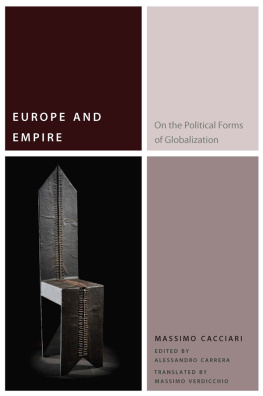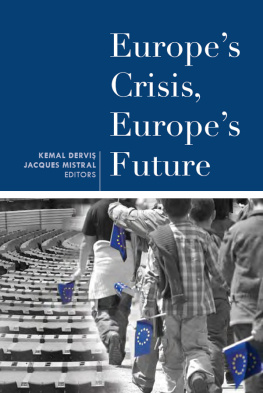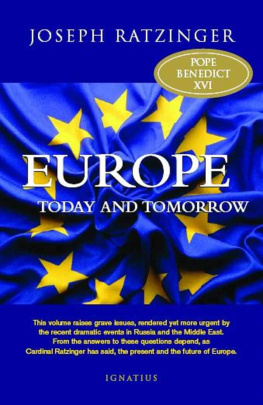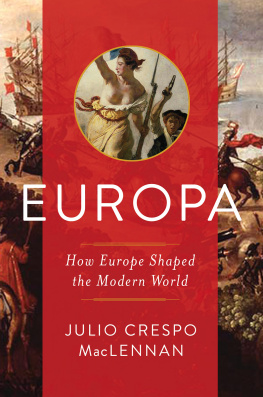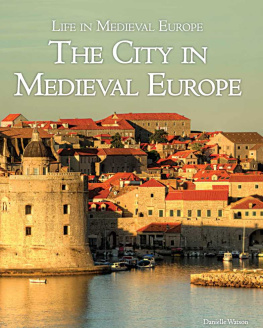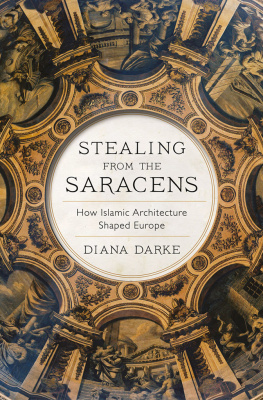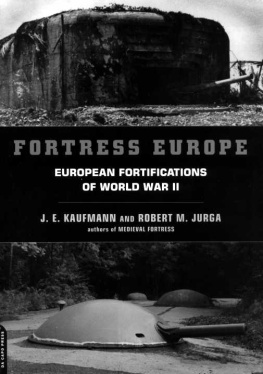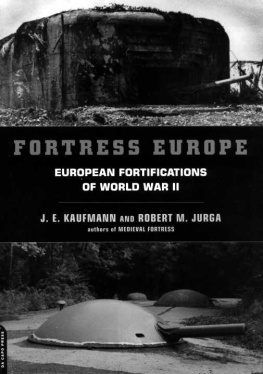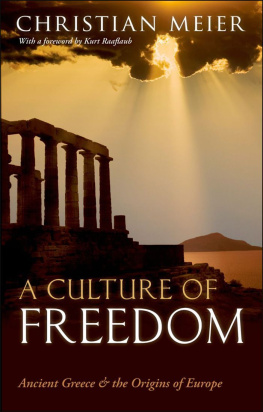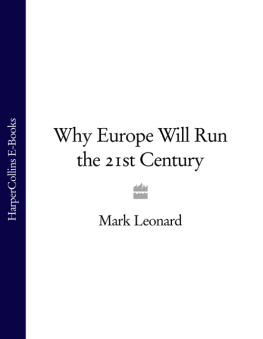


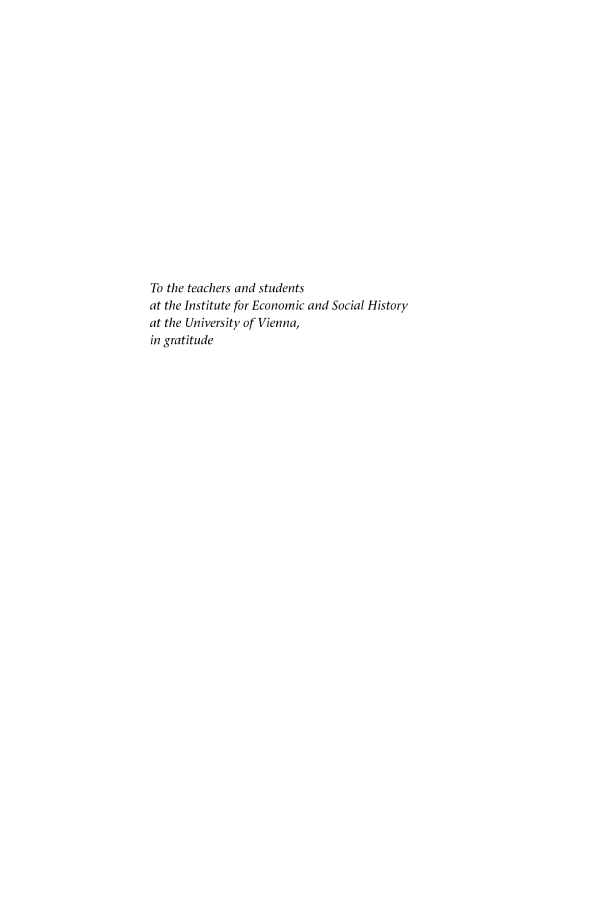
Translators Note
The translation of the title of this workWarum Europa? Mittelalterliche Grundlagen eines Sonderwegsneeds a little explanation. The word Sonderweg is sometimes retained in an English text as a technical term; translated, it is usually rendered special path. There is an argument to be made for unique path, or specific path, since special is so overworked, but because unique might be misconstrued as a plea for European exceptionalism, I have employed the word sparingly throughout the book.
I have several people to thank for all kinds of assistance. First and foremost, Michael Mitterauer for his conscientious reading of a late draft, countless suggestions, and patient explanations of textual difficulties. Without his energetic cooperation, at times under great stress, this English version of Warum Europa? would have been greatly diminished, if not impossible. Constantin Fasolt and Jonathan Lyon, both at the University of Chicago, read the manuscript all or in part, offering both corrections and encouragement. The text also profited from the careful scrutiny and extensive knowledge of George Thomas, my colleague at McMaster University, to whom I am most grateful. I am pleased to acknowledge different kinds of advice and support from other McMaster colleagues: Bernice Kaczynski, Virginia Aksan, Richard Rempel, and Gabriele Erasmi. Tim McGovern, Joel Score, and Rob Hunt of the University of Chicago Press were helpful in shepherding the project through its many phases. Special thanks must be reserved for Carlisle Rex-Waller for her superb copyediting, from which author, translator, and reader have benefited enor mously. In spite of all this help, the responsibility for whatever translating flaws remain must of course rest with me. I would be grateful if any errors were pointed out, as well as English versions of foreign works listed in the bibliography that have escaped my notice. The notes and bibliography have been carefully revised.
Technical help from McMasters Interlibrary Loan services was invaluable. Financial assistance came from the Canada Council for the Arts, which allowed me to take up a productive writers residency at Villa Waldberta near Munich, made possible through the generosity of that city and Karin Sommers able assistance.
Finally, I wish to thank Nina, my wife, for her unflagging support at all stages of the translations composition. I dedicate this translation to her in gratitude.
Gerald Chapple
Dundas, Ontario, September 28, 2009
Preface to the English Edition
It is a great pleasure for me to see my book on the medieval origins of Europes special path appearing in English seven years after its first German printing and after its Spanish translation. The circle of potential readers is widening, and the discussion of my thinking in the book can now proceed on a broader basis.
The task I set for myself in writing this book was not concluded at its publication. Much relevant material has appeared in the last seven years. It is impossible to work it into my text, so I will limit myself here to indicating some of the directions the book has taken me in my recent scholarly endeavors in comparative history.
Chapter 6, which explores the roots of European expansionism, has proved an important point of departure. Thus, in Pisa: Seemacht und Kulturmetropole (Pisa: Naval power and cultural metropolises), a volume I published with John Morrissey in 2007, I attempt to describe the reciprocal effects of economic, political, and cultural developments in an Italian maritime republic. The significance of these developments for the beginnings of colonialism has received scant attention until now. My concern with early modes of mass communication in chapter 7 of Why Europe? seemed to me even more relevant after I read the Arab Human Development Report from 2003. In my 2008 article Schreibrohr und Druckerpresse: Transferprobleme einer Kommunikationstechnologie (Reed pen and printing press: Problems of transfer in a communication tech nology), I focus on the issue of why the adoption of the printing press with movable type in the Islamic world had to wait for such an inordinately long timesurely a key question for the understanding of a specific cultural development in the history of religion. To further our knowledge of the specific political structures in the East and the West, in 2009 I followed up some ideas in chapter 4 in a little book on the important topic of Islam and democracy: Parlament und Schura: Rats versammlungen und Demokratieentwicklung in Europa und der Islamischen Welt (Parliament and Shura: Councils and the growth of democracy in Europe and the Islamic world).
Two topics in particular have engaged me since the original publication of this book: the importance of the water mill for industrialization and the role of iron in Europes special path. I take them up again in my 2007 study Standortfaktor Wasserkraft: Zwei europische Eisenregionen im Vergleich (Waterpower as a factor of location: A comparison of two European iron-producing regions). In my 2009 article Die Anfnge der Universitt im Mittelalter: Rume und Zentren der Wissenschaftsentwicklung (The beginnings of the university in the Middle Ages: Areas and centers of the growth of scholarship), I have tried to make up for a justly criticized deficiency in the present book the all too brief treatment of the university as a specifically European educational institution. None of these references, now included in the bibliography, can replace for the reader what has been insufficiently described in Why Europe? But each emphasizes a scholarly context into which I feel my comparative studies can be integrated.
Seven years after the first edition of this volume is surely too early to take stock of the way it has been discussed. High praise has been matched by harsh criticism. It seems surprising that both positive and negative opinions have been so emotionally colored. One colleague wrote, To begin a book on Europe with Rye and Oats is no doubt a colossal act of aggression against whole generations and their thinking. We still expect Emperor and Coronation. My books approach is surely an unusual one for a medieval historian to take. The emotional nature of many reactions probably has to do with current debates about Europe in which this book has played a part. Any argument over identity in the present always involves views of the past. Here is a leading scholar of the didactics of history: Even Mitterauer did not consider all of Europe in a scholarly and analytical way but only the West. Aware of the threatening political risks of isolation or exclusion, he too fiddles a pseudo-solution for the East-West divide. Even if you are at pains to observe history analytically, you cannot avoid todays powerful current of history as identity politics. Any position opposing this view is readily suspected of Eurocentrism. Webers introductory sentence in his essays on the sociology of religionthe starting point of my studycan easily be misinterpreted along those lines. This books position in response to the issue should clearly counteract these suspicions.
A book lives by its readers. The fact that Why Europe? has prompted a vigorous reaction among its German-speaking readers is a gratifying confirmation that I have put something in motion. The hope for similar lively feedback accompanies this book on its way to an Englishspeaking audience.


